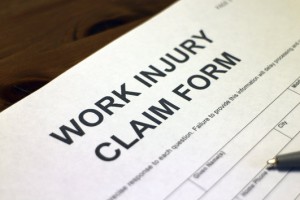The Statute of Limitations in Workers’ Compensation Cases in Maryland

The Maryland Court of Appeals recently issued a decision addressing the statute of limitations in workers’ compensation cases. Mark G. Hranicka v. Chesapeake Surgical, Ltd., et al., No. 83, September Term, 2014. In its decision, the Court found that submitting a claim electronically with the Workers’ Compensation Commission does NOT constitute “filing” a claim as required under Maryland Workers’ Compensation law. Instead, the claim is filed only when a completed and signed claim form is received by the Commission. The unfortunate result of the decision is that the injured worker was precluded from receiving workers’ compensation benefits despite the fact that all interested parties had notice of the accident prior to the expiration of the statute of limitations.
It is important for injured workers’ and attorneys who practice workers’ compensation law in Maryland to understand how the statute of limitations applies in workers’ comp claims. Section 9-709(b)(3) of the Labor and Employment Article provides, “if a covered employee fails to file a claim within [two] years after the date of the accidental personal injury, the claim is completely barred.” The date of accident, however, does not always govern when the two-year period begins. In cases where an injured worker sustains an accidental personal injury on the job that results in disability of more than three days or death, the employer must report the injury to the Maryland Workers’ Compensation Commission within ten days of receiving notice of the disability. LE § 9-707. If the employer fails to meet the reporting requirement, the statute of limitations does not begin to run until the employer properly files a report with the Workers’ Comp Commission. LE § 9-708(b).
The Hranicka case focuses on what constitutes “filing” a claim by an injured worker, as “filing” must be done prior to the expiration of the statute of limitations. The requirements for filing a claim are set forth in the Code of Maryland Regulations (COMAR) at 14.09.02.02. COMAR 14.09.02.02 requires the employee (injured worker) to file a properly signed claim form with the Commission. Under COMAR 14.09.02.02(A)(9)(a) “[a] claim that is submitted electronically is not considered filed until the signed claim form, including the signed authorization for disclosure of health information, is received by the Commission.” It is this regulation that ultimately led to the Employer and Insurer’s victory in the Hranicka case.
On its’ face, the decision of the Court of Appeals is understandable. The result, however, seems unfair to the claimant considering all parties had notice of the injury. Cases such as the Hranicka case reflect the importance of knowing the law and procedures when handling a workers’ compensation claim in Maryland. The experienced workers’ compensation lawyers at Jenkins, Block and Associates, stand ready to guide our clients through the complexities of the workers’ compensation system. If you have been injured on the job, call the attorneys at Jenkins, Block and Associates – 1-800-243-7122. The phone call is free and so is the consultation.
Contact an Attorney Today!
Learn more about Jenkins, Block and Associates and stay up-to-date with our latest news on our Facebook, Twitter, LinkedIn, and Google+ pages.


